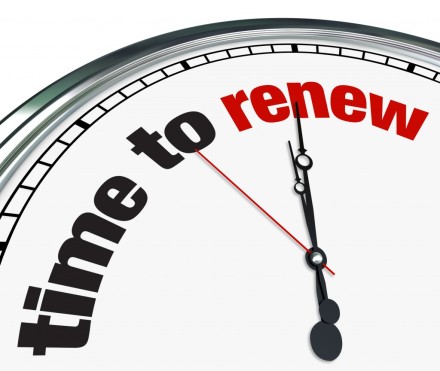Renewal from Decision Fatigue

My colleagues invited me to lunch on my birthday and wanted me to choose the restaurant. As I drove and they laughed about my passion for southern gospel quartet music, I realized I could not make a decision about where to eat. This started a discussion about “decision fatigue.” They told me I should take a cue from Steve Jobs and Mark Zuckerberg, who each intentionally reduced their daily decisions by wearing the same thing every day!
“Decision fatigue” is the reduced mental function due to the strain from many decisions and/or exerting extreme self-control, creating high emotional stress. “People find that making many choices can be [psychologically] aversive.”[1] While reading about decision fatigue, I learned when we are tired, we generally are tempted to either become impulsive and reckless, or to avoid decisions altogether. The “process of choosing may itself drain some of the self’s precious resources, thereby leaving the executive function less capable of carrying out its other activities. Decision fatigue can therefore impair self-regulation”.[2]
This is called the theory of ego depletion, which suggests that self-control, or willpower, draws upon a limited pool of mental resources that can be used up. In other words, when we have used up our willpower resources, we begin to have boundary problems. We may become quick tempered, impulsive, apathetic, etc. I read that those who are struggling financially have higher stress and “decision fatigue” even when making simple purchases, and are therefore in greater danger of impulse buying than those who can shop or make purchases without financial stress. George Loewenstein has suggested that the disastrous failure of men/women in high office to control impulses in their private lives may at times be caused by decision fatigue, which stems from the burden of day-to-day decision making.[3] When this happens such a person may become unable to hear his/her conscience. “Ego depletion has been shown to hinder the ability to engage in such reflection, thereby making it difficult to experience guilt.”[4]
I consider myself blessed to be surrounded by older, wiser men than me, who consistently challenge me to slow down, have quiet time, “Be still, and know that He is God.” While the internet, the Starbucks-culture consumerism, and the pace of life are certainly increasing my decision-making opportunities, I think God’s solution to decision fatigue and ego depletion is the same as it’s always been. Paul calls us not to conform to the pattern of this world, but be transformed by the renewing of our minds (Ro 12:2). To be transformed, or transfigured, is to “be changed after being with” Jesus. The renewing is to be refreshed by God’s power. The Bible promises us an unlimited measure of the Holy Spirit’s self-control (Gal. 5:23) if we will take the time to receive it.
I also read “In a recent experiment, it was shown that inducing a positive mood can buffer the impairing effects of ego depletion on subsequent performance.”[5] This sounds like the Bible to me! “It is God’s will that we give thanks in all circumstances (1 Thess. 5:18)!”
When you sense the decline of decision fatigue setting in, you can decrease decisions by wearing the same shirt every day as some high-level executives do, or you can spend time in solitude and thanksgiving as Jesus invites us to. In the words of my dear friend Bill, “Jason, remember Psalm 42:10 – BE STILL.”
1 Danzigera, Shai; Levav, Jonathan; Avnaim-Pesso, Liora (2011), “Extraneous factors in judicial decisions”, Proceedings of the National Academy of Sciences, 108 (17): 6889–6892, doi:10.1073/pnas.1018033108, PMC 3084045, PMID 21482790
2 Vohs, Kathleen; Baumeister, Roy; Twenge, Jean; Schmeichel, Brandon; Tice, Dianne; Crocker, Jennifer (2005). “Decision Fatigue Exhausts Self-Regulatory Resources — But So Does Accommodating to Unchosen Alternatives” (PDF).
3 Loewenstein, George (2003), Time and decision: economic and psychological perspectives on intertemporal choice, p. 208, ISBN 0-87154-549-7.
4 Xu, H.; Bègue, L.; Bushman, B. J. (2012). “Too fatigued to care: Ego depletion, guilt, and prosocial behavior”. Journal of Experimental Social Psychology. 43 (5): 379–384. doi:10.1016/j.jesp.2012.03.007.
5 CUTRIGHT, K. M.; SAMPER, A. (2014). “Doing It the Hard Way: How Low Control Drives Preferences for High-Effort Products and Services”. Journal of Consumer Research. 41 (3): 730–745. doi:10.1086/677314.
Powered by WPeMatico
